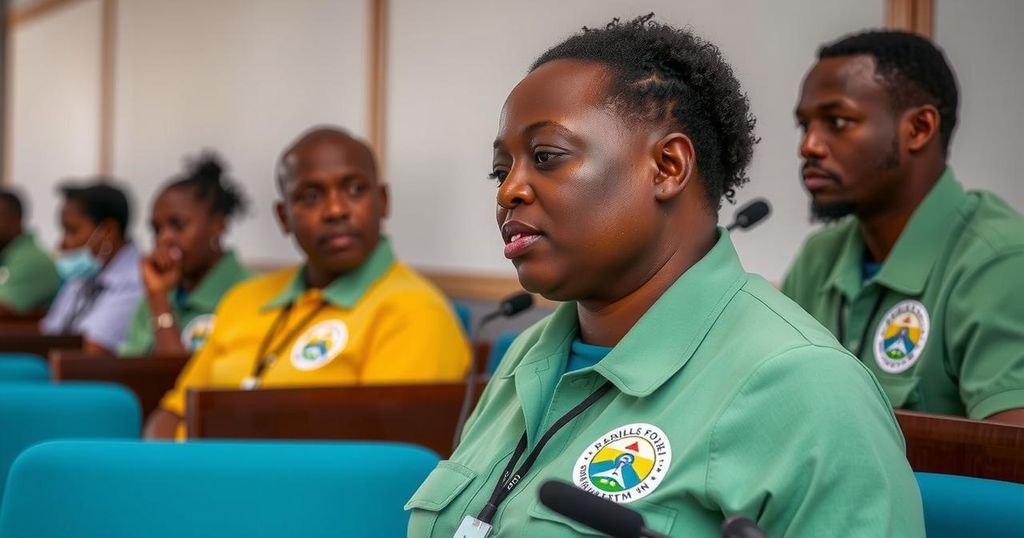Gabon Voters Support New Constitution Amid Concerns of Authoritarianism

Gabon’s military leaders announced that a new constitution has been overwhelmingly approved in a referendum, with 91.8 percent of voters supporting it. The constitution limits presidential terms and establishes specific eligibility criteria for candidates. However, voter turnout was lower than expected at 53.54 percent. Critics express concerns that the changes enhance authoritarianism, while supporters are hopeful for increased stability.
The military leadership in Gabon has declared that the nation’s new constitution was approved by an overwhelming majority in a recent referendum, as per provisional results announced on Sunday. Approximately 860,000 registered voters participated, encouraged by significant campaigning from authorities across various media platforms. The newly proposed constitution introduces limits on presidential terms, mandates eligibility criteria for candidates, and abolishes the role of a prime minister. Provisional results indicated that 91.8 percent of participants supported the new constitution, although concerns were raised regarding voter turnout, which was reported at 53.54 percent.
The referendum campaign was heavily influenced by the junta that came to power following a coup last August. Local media suggested that the extent of voter participation was critical, amid a backdrop of official propaganda favoring a ‘yes’ vote. Notably, the new constitution stipulates that presidential candidates must be Gabonese by birth and married to a Gabonese citizen, thus disqualifying former president Ali Bongo Ondimba and his family. The transitional president, Brice Oligui Nguema, who has expressed intentions to return power to civilian governance after a two-year transition, described the event as a significant step forward for Gabonese democracy.
Voting reportedly occurred without serious incidents at the 2,835 polling stations across the country, and there were increased security measures, including a nighttime curfew extension during the electoral process. Despite positive sentiments expressed by some citizens, critics argue that the proposed changes are designed to entrench authoritarian rule. Concerns about unemployment, health, and rising living costs remain prevalent among the populace, even as surveys indicate increased confidence in President Oligui’s leadership and a majority believe the country is on the right track. The final results of the referendum will be confirmed by the constitutional court.
The political landscape in Gabon has recently undergone significant changes following a coup that ousted long-time President Ali Bongo Ondimba. The military government, led by Brice Oligui Nguema, is now seeking to reshape the country’s governance structure through a new constitution. This constitution reportedly aims to curb potential abuses of power by establishing term limits for the presidency and introducing specific eligibility criteria for candidates. The conduct of the referendum will likely influence Gabon’s political stability and the transitional rulers’ plans for a return to civilian governance. Voter turnout and the referendum’s integrity are critical factors as they reflect the populace’s trust in the new regime and its direction, especially given the threats of corruption and poor governance that have marked the previous administration.
In conclusion, the provisional results of Gabon’s referendum indicate strong support for a new constitution that aims to redefine the nation’s governance. While the junta has managed to mobilize voters effectively, concerns persist regarding the legitimacy of the process amid accusations of propaganda and tailored policies that may reinforce authoritarianism. The future governance of Gabon hinges on the final confirmation of these results and the junta’s ability to transition to a civilian-led government by 2025, reflecting the people’s aspirations for a democratic and accountable leadership.
Original Source: www.tiogapublishing.com






